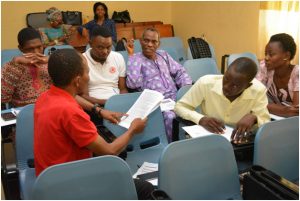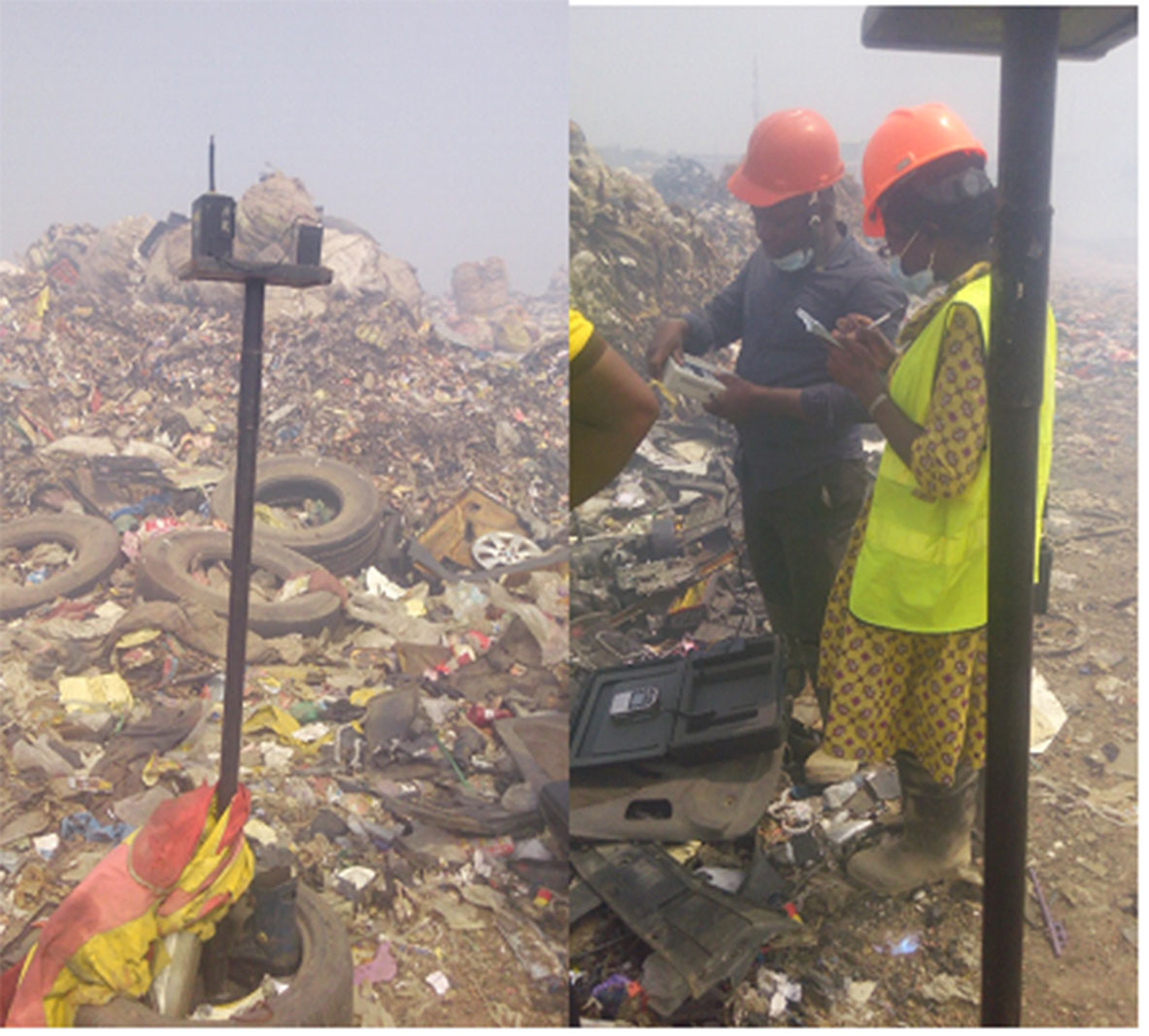In a bid to bridge the gap between the academia, industry and relevant stakeholders, students of the Federal University of Agriculture, Abeokuta’s Africa Centre of Excellence in Agricultural Development and Sustainable Environment (CEADESE) have, within the last few months, embarked on internships to partner institutions, to gain practical and on-field experience as well as to identify research gaps, which will form the basis upon which their research work is based.
CEADESE’s internship programme, which is a vital Disbursement-Linked Indicator (DLI) of the ACE project, is structured in two phases, with the first dedicated to interactions, problem identification and proposal development, while the second involves implementation of research objectives.
Below are bits and pieces from the experiences of some of the students:
OLANIYI Mariam Bolanle, a student of the Livestock Science and Sustainable Environment programme, was an intern at Agro Cattle Nigeria, Ikorodu, Lagos. Established in 2015, with the sole aim of fattening cattle, Agro Cattle Nigeria has, since, diversified into the production of other small ruminants, with about 50 goats, 600 cattle and over 200 sheep. The farm’s focus has extended to accommodate other components, such as beef fattening, and goat production.
As part of her programme, Ms. Olaniyi carried out activities such as daily feeding of the cattle with concentrates and, later in the day, administration of various grasses. She was also charged with the responsibility of monitoring the health of the animals and administering treatment to infected animals. Other tasks included feed formulation as well as stock-taking, to ascertain the number of animals on the farm at every given time. Data collected included sex, age, and physiological state of each animal.
The internship period afforded Ms. Olaniyi the opportunity to gain hands-on experience in the daily and routine management of ruminant animals and has, thus, prepared her for the task of finding a solution to common problems encountered on the field.
OYINLOYE Yewande Mary, a student of the Agricultural Economics and Environmental Policy, underwent her internship programme at the Nigerian Institute of Social and Economic Research (NISER), a Federal Government parastatal established, primarily, for research into Nigeria’s economic and social problems. NISER undertakes extensive research into problems of economic development and planning, agricultural and industrial development, foreign trade, public finance, education, health and social welfare. It also constitutes various research departments.
Ms. Oyinloye worked in the Economic Policy Research Department (EPRD), which conducts a wide range of practical socio-economic research, with a view to providing inputs and guidelines for long term policy formulation and investment decisions. The Department conducts studies on the impact of existing policies and programmes of government and recommends shifts/adjustments, where necessary, and coordinates trainings, conferences and workshops relevant to the Department.
In the course of the programme, Ms. Oyinloye worked under the supervision of Dr. Timothy Oni, a senior researcher with NISER. She was also opportune to attend the February, 2017 edition of the NISER Research Seminar Series (NRSS), which featured a presentation, titled “Actors and Institutions in Agricultural Public Expenditure Allocation and National Food Security: Evidence from Subnational Jurisdiction in Nigeria”, delivered by Dr. Tewodaj Mogues, a Senior Research Fellow at the International Food Policy and Research Institute (IFPRI), Washington DC.
Experiences garnered in EPRD prompted the student’s research study, titled “Effect of Production Efficiency on Integrated and Non-Integrated Fish Farmers’ Poverty Status in Ogun State.”
Another experience is that of Ogunleye Toluwalase Janet, a student of Environmental Systems and Climate Change, whose internship was carried out at Environmental Laboratories Limited, an affiliate of MOYEZ Analab Resource. Incorporated in 2008, with the mission to provide clients with high quality services and defensible reports that would assist customers define their needs to meet or exceed their expectations with informed decisions based on reliable empirical data, Environmental Laboratories Limited, which is headed by Dr. ’Femi Oyediran, has state-of-the-art laboratories (chemical, microbiology and elemental) and field equipment, which provide analytical and consultation services to support clients’ requirements under national, state and professional human resources to carry out environmental studies and analysis.
During her five-week stint with the organisation, Ms. Ogunleye was attached to the laboratory and environmental/field units. She also participated in two training sessions on Good Laboratory Practices (GAP) and Water Analysis.
Using the Standard Operating Procedure (SOP) prepared by professional analysts in the organisation, for different parameters, Ms. Ogunleye had the privilege of participating in the analysis of waste water samples, treated effluent samples, sewage water samples, borehole water samples as well as stream and spring water samples.
On two different occasions, she also participated in the field work carried out at Olusosun dumpsite, Ojota, Lagos, which involved microbial air sampling and air quality monitoring, at certain points and outside the dumpsite area. The major aim of this was to evaluate the occupational health hazards of workers at the dumpsite.
The student acknowledged that the experience gathered at the laboratory had exposed her to a practical knowledge of one of the programme’s first semester courses (Waste Water Management and Pollution Control). The experience informed her decision to work on the assessment of poultry air pollution, cognisant of its environmental effects (climate change, acidification, odour, etc.) and health impact on the birds, workers within the facility and other residents around the poultry.
Meet Ayoola Grace Temitope, a student of Food Processing and Value Addition. Grace’s internship was done at Obasanjo Farms Nigeria Limited. The Farm was established in the year 1978, with a mission to be a responsible, responsive, competitive, quality-driven production and marketing company, satisfying all stakeholders. It specialises, mainly, in the provision of agro-based products and services, such as table eggs, chicken (broilers, growers, layers, day-old chicks, etc), hatchery services.
The Farm is also involved in chicken processing and is equipped with a cold room which has the capacity to process up to 2,500 chickens, per hour. The processing unit is divided into five sections, namely hanging and slaughtering, evisceration, offal packaging, sorting and grading.
During her intership with the Obasanjo Farms, Grace worked in the processing unit, which afforded her an opportunity to acquire practical skills related to her course. It also exposed her to the various methods, procedures and equipment for the processing of frozen birds as well as value-addition to poultry products.
FOLARIN Itunuola A., a PhD student in AgSE, undertook her internship programme at the National Centre for Genetic Resources and Biotechnology (NACGRAB), the body responsible for registering new breeds of plants and animals in Nigeria. Established in 1987 by the Federal Ministry of Science and Technology (FMS&T), to conduct research, gather data and disseminate technological information on matters relating to genetic resources conservation, utilisation and biotechnology applications, NACGRAB is backed by Decree 33 of 1987, to regulate the seed, livestock and fisheries industries. The Centre is committed to the conservation of the rich genetic resources of the nation, with a view to enhancing agricultural, economic and social development.
NACGRAB has various units, among which are Animal Genetic Resources (AGR) and Biotechnology, where Ms. Folarin worked. Other units include Plant Genetic Resources, Tissue Culture, Seed Bank and the Gene Bank Units.
At the AGR unit, Ms. Folarin gathered experience from working in the Centre’s livestock research farm, participating in on-farm activities and regular consultations with the Assistant Unit Head.
At the Biotechnology Unit, she was attached to the molecular biology laboratory, where molecular tools and procedures are used to unravel the basis of life. The structure of specific molecules of biological importance, such as proteins, enzymes, and the nucleic acids DNA and RNA are studied in relation to their functional roles in cells and organisms. Finally, an industry-based Supervisor was assigned to the student’s research.
AYOOLA Abiodun Adeyinka, a student of the M. AgSc. Livestock Science and Sustainable Environment programme, underwent his internship at NORGEM/NOVUS INTERNATIONAL. Novus was established in 1991, as an animal nutrition-based company, to provide a holistic approach to solutions, service and sustainability for poultry, swine, aquaculture and cattle.
During his stay in the company, the student attended and visited places such as the land grant university, farms, industries, government parastatals, conferences and Novus offices.
At the end of the internship, Mr. Ayoola observed that environmental sustainability was lacking in developing countries, like Nigeria, where farmers often think of profit-making, while neglecting the possible impact on the people and the environment. The student also recommends CEADESE’s programmes to people, cognisant of its standards.

Faculty and students of CEADESE

